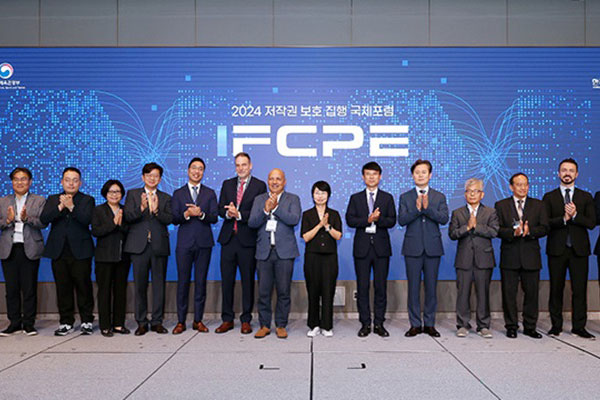South Korea and Indonesia Collaborate on Advanced Measures for Copyright Protection
SEUL, RAKYAT NEWS – Indonesia and South Korea signed a significant Memorandum of Understanding (MoU) in Seoul, aiming to enhance cooperation in copyright protection. The agreement marks a pivotal moment in the ongoing efforts by both countries to address and mitigate copyright infringement.
The MoU was signed by Hyangmi Jung, Director General of the Copyright Bureau of South Korea, and witnessed by Zelda Wulan Kartika, Acting Chargé d’Affaires at the Indonesian Embassy in Seoul.
The signing was on behalf of Min Usihen, Director General of Intellectual Property at Indonesia’s Ministry of Law and Human Rights.
According to Zelda Wulan Kartika, this collaboration represents a critical step in fortifying joint efforts to combat copyright crimes. She expressed optimism that the partnership would significantly contribute to the economic, social, and cultural development of both nations.
The agreement emphasizes improving capacity to handle digital copyright violations, acknowledging the growing complexity of such infringements in the online environment. Zelda highlighted that advanced cyber-monitoring systems could be developed to detect and address online copyright breaches more effectively.
The cooperation will involve sharing best practices in managing digital copyright cases. This includes exploring technologies like blockchain to track and verify the ownership of creative works, thus enhancing transparency and security.
Hyangmi Jung pointed out the increasing ease with which copyright violations occur internationally through illegal content distribution. She stressed the need for comprehensive cooperation between Indonesia and South Korea to tackle this issue effectively.
Jung reflected on the lengthy discussions and adjustments that led to the MoU, emphasizing its significance as a testament to the mutual trust and commitment of both countries in fighting copyright infringement.
Budi Hadisetyono, Head of the Complaints Team at Indonesia’s DJKI, expressed confidence that this collaboration would have a positive impact on copyright protection and drive progress in the creative sectors of both countries. He noted that better copyright protection would foster a supportive environment for creators and innovators.
The MoU outlines five key areas of cooperation. First, it aims to enhance the effectiveness of copyright management and protection systems in both countries.
Second, it focuses on joint investigations into copyright crimes, including those involving cross-border criminal activities. Third, the agreement includes educational and training initiatives, such as workshops, seminars, and symposiums related to copyright issues.
Fourth, the MoU covers information sharing, including exchanging data on copyright crimes, enforcement practices, and best practices in the field. Finally, it addresses capacity building to improve the skills and equipment of personnel involved in copyright enforcement.
This agreement is expected to create a more conducive environment for the growth of the creative industries in both Indonesia and South Korea. Enhanced copyright protection will enable creators to work with greater security, ultimately benefiting society at large.
The collaboration between the two countries reflects a broader commitment to improving intellectual property rights and fostering a robust creative economy. The MoU is seen as a crucial step in advancing these goals. (Uki Ruknuddin)


Tinggalkan Balasan Batalkan balasan